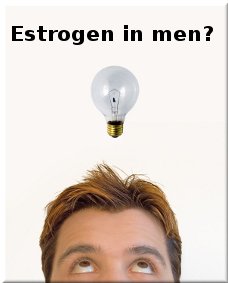Testosterone, likely the first hormone that you think of in regards to men’s sexual health.
Testosterone is essential for strength, stamina, the development of the reproductive system, strong bones, and a healthy libido.
We have long known that testosterone is vital for well-being, but recent studies indicate there is another important sex hormone in both men and women: estradiol, a form of estrogen. Just as women need a small amount of testosterone to develop properly, men require small amounts of estrogen. In men, estradiol is produced by the adrenal gland and the Sertoli cells of the testes.
Interestingly, the serum levels of estradiol in males are roughly comparable to those of postmenopausal women, although throughout a man’s life levels will fluctuate. As men age, their estradiol levels gradually increase, while their progesterone and testosterone levels gradually decrease.
In addition to aging, elevated levels of estradiol in males may be caused by increased body fat, or the excessive use of marijuana, alcohol, or prescription drugs.[3] Men with sex chromosome genetic conditions, such as Klinefelters Syndrome, will have elevated levels of estradiol. Too much estradiol can lead to estrogen dominance, or to an enlarged prostate – increasing the risk of prostate cancer.
Research indicates that low estradiol levels in men are associated with an increased rate of bone loss, which can lead to osteoporotic fractures – older men, in particular, should maintain control of estradiol levels for overall health. Test your estradiol levels with a home testing kit.
Estradiol is related to erectile function and has complex effects on the liver. It can lead to cholestasis – a condition in which the flow of bile from the liver is blocked. It affects the production of multiple proteins, including binding proteins, lipoproteins, and proteins associated with blood clotting.


